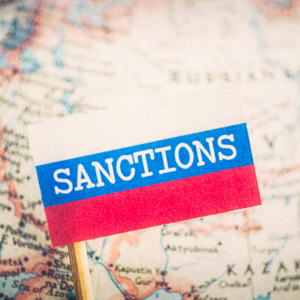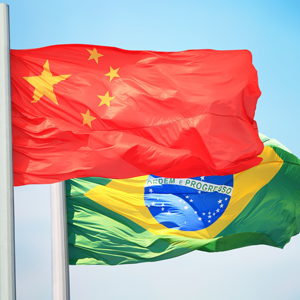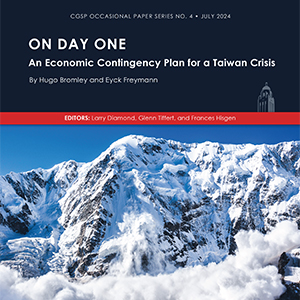Here we feature the recent works of Hoover History Lab authors that feature specific policy recommendations.
See also Books, Articles, and Commentary from the Hoover History Lab.

Reforming Philippine Language Governance: How Language Parity Can Revive Filipino Nationhood
By Mikey Tupaz
October 2, 2025
This brief calls for reforming Philippine language governance to address linguistic inequality, brain drain, and cultural decline. It proposes a constitutional amendment enshrining language parity by recognizing all major Philippine languages as co-national, and legislative reforms—to strengthen the Komisyon sa Wikang Filipino and restore the Mother-Tongue Based Multilingual Education mandate—that aim to unify the nation, preserve cultural heritage, and sustain global competitiveness.

The Senior Bulge: Anticipating and Addressing the Aging Boom
By Katharine Sorensen, Jonathan Cosgrove, Divya Ganesan, Daniel Longo
September 17, 2025
The world is experiencing a profound demographic shift: a "senior bulge" where those aged 65+ outnumber younger cohorts for the first time in history. This trend, driven by longer life expectancy and lower fertility, poses economic, political, and social challenges to all societies.

Twenty Million Left Behind: How Nigeria’s Broken Education Policies Threaten a Nation, a Continent, and the World
By Gift Iyioku
July 8, 2025
This policy brief examines why decades of education reform in Nigeria have failed to produce transformative results, despite significant investment and planning. Drawing on lessons from African peer nations including Tunisia, Seychelles, Kenya, and Liberia, it proposes a blended strategy that combines stronger state capacity with strategic engagement of nonstate actors. Practical recommendations, from sustainable financing to public-private collaboration, offer a pathway to expanding quality access and improving learning outcomes.

Lebanon Reborn? How Saudi Reengagement Can Restore Lebanese Sovereignty and Purge Hezbollah
By Katharine Sorensen
June 3, 2025
Lebanon possesses the rare opportunity to marginalize Hezbollah, restoring state sovereignty amid the group’s military and political decline following its conflict with Israel.

Afro-Caribbean Human Capital in the United States: Immigrant Success in Early Twentieth-Century Philadelphia
By Johann Smith
January 16, 2025
What can we learn from the socioeconomic rise and exemplary lives of Afro-Caribbean immigrants to Philadelphia in the early twentieth century, a period marked by considerable racial prejudice and systemic barriers that held back other groups? The historical success of Afro-Caribbean immigrants—characterized by their education, ambition, work ethic, intact families, faith, and community solidarity—offers actionable lessons for public policy.

A Fresh Look at the Russian Assets: A Proposal for International Resolution of Sanctioned Accounts
By Philip Zelikow
January 7, 2025
As leaders debate how to stop Russia’s war in Ukraine, they should at last clean up and escrow the management of the $300 billion in Russian assets that have been frozen for nearly three years. Since their seizure, the political and financial circumstances have completely changed.

Defense Against the AI Dark Arts: Threat Assessment and Coalition Defense
By Philip Zelikow, Mariano-Florentino Cuéllar, Eric Schmidt, Jason Matheny
December 4, 2024
The United States must now start working very hard with allies to secure democratic advantage in the domain of frontier AI. We suggest how to manage the convergence of three great vectors: private sector–led innovation, emerging threats, and international efforts.

Lessons for American Immigration Policy from the Past
By Cody Nager
Thursday, October 24, 2024
Many observers argue that current US immigration policy is broken. Can it be fixed? By examining past American immigration debates, we can identify three fundamental principles that make policy more effective: simplicity, selectivity, and locality. Applying these principles to current debates would lead to a better and more responsive immigration policy, benefiting both current and future Americans.

Pitfalls of State-Led Development: Brazil’s Past Offers a Warning for China
By Dian Zhong
Friday, October 11, 2024
China’s state-driven economic model is at a critical crossroads, and debates over its sustainability are often emotionally charged and ideologically driven. Zhong offers a fresh perspective by using Brazil’s past to illuminate China’s future.

BRI Colonialism in Africa: China’s Exploits Can Help the West Reengage the Continent
By Kate Tully
Friday, October 11, 2024
The West faces a critical juncture as China, through its Belt and Road Initiative, expands into Africa to secure resource dominance. With African sovereignty and global order threatened, how can the West reengage Africa?

Arms Uncontrolled: China’s Strategic Nuclear Weapons Expansion and Its Implications for the United States
By Lindsay Wu
Friday, October 11, 2024
Parity-based US strategic doctrines are being challenged: China is rapidly expanding its nuclear arsenal to rival those of the US and Russia; the combined forces of Beijing and Moscow could easily outnumber those of the Western allies.

On Day One
By Hugo Bromley, Eyck Freymann
Monday, June 24, 2024
The United States lacks an economic contingency plan for conflict with China. Hard decoupling through sanctions is not viable. Instead, the United States should prepare a “Day One” plan based on economic leadership and recovery. By harnessing incentives and market forces, Washington and core US allies can trigger avalanche decoupling in trade while working with the interests of third states and preserving dollar hegemony and the rules-based trading system.

The Evolution of Intelligence Reform, 2002–2004
By Philip Zelikow
September 2012
Large organizational change in the United States occurs in evolutions, not revolutions.






















